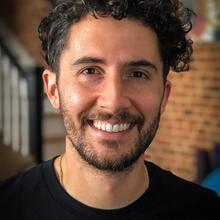The parable of the good Samaritan ends differently without the innkeeper. Arguably, without the innkeeper, the parable falls apart and the good deed falls short.
The Samaritan, after all, is no medical expert. He doesn’t have the resources, the expertise or the time to provide the bruised and battered traveler with the care he needs. What the Samaritan has is the decency to notice and care for his fellow human being and enough first aid supplies to clean and bandage the man’s wounds. But then what? The victim is hurt, unable to travel far and in need of a safe place to recover.
And so, the Samaritan “lifted him up on his own animal, took him to an inn and cared for him. The next day he took out two silver coins and gave them to the innkeeper with the instruction, ‘Take care of him. If you spend more than what I have given you, I shall repay you on my way back.’” (Lk 10: 34-35)
The Samaritan trusts the innkeeper to care for the wounded man, to offer him what the Samaritan can not. He knows that the innkeeper has the resources—a bed, shelter, food and water—to help the man heal. He believes the innkeeper to have the expertise, too, to use those resources for the betterment of the injured man. That is why the Samaritan offers a donation to cover the costs of those services.
The Samaritan’s good deed is not meant to be a one-off, feel-good bit of charity. The Samaritan wants the victim to be made whole; he wants his charitable work to have a sustainable outcome. He wants the man to be able to go home to his own family, his own community, to be able to live his life again—and live it to the fullest.
That’s why for the Samaritan’s deed to be a true and lasting good, he needed the innkeeper.
And so do we.
I think—I hope—we all fancy ourselves good Samaritans. We all strive to do what is right, to see need and act. That is a good and holy desire. But at the same time, none of us are experts in everything.
I may have $20 in my pocket, but I don’t have a degree in social work or an understanding of agroecology or a fleet of trucks able to transport lifesaving aid into disaster-stricken communities. I may have $20 in my pocket, but I don’t live in Los Angeles where the fires burn or in Sudan where famine strikes or in Haiti where gangs terrorize communities or on the U.S.-Mexico border where refugees seek asylum.
I want to help. I want to be a good Samaritan. But I’m not an expert. And I can’t personally deliver help and hope to people around the world. That is why I want to know there are innkeepers who can steward my meager offerings and transform my charitable hopes into lasting and sustainable good.
This desire is not an evasion of personal responsibility. It is a recognition of necessary limitations and my own vocation. It’s an embrace of our universal call to live as one human family in a common home, a reminder that we are all members of the body of Christ. As Pope Francis writes in “Fratelli Tutti,” “The Samaritan discovered an innkeeper who would care for the man; we too are called to unite as a family that is stronger than the sum of small individual members.” (No. 78)
The Samaritan plays his part; so, too, does the innkeeper. We need both if we are to care for those who are most vulnerable.
This means that we can’t play games with the federal funding that the many innkeepers across our country rely upon: the healthcare workers and the case managers, the shelters and the medical research institutes, both faith-based and secular organizations. How many of us so-called good Samaritans have the expertise, time or resources that these innkeepers already possess—and have been building upon for decades?
We should be ashamed to cut international aid funding that allows for countless innkeepers to care for, rebuild and transform communities the world over. Our global good intentions will fall irrevocably short if we do not sustain the work of these innkeepers—so many of them funded by USAID—all across the globe.
Ultimately, the parable of the good Samaritan is about relationships. The story is so striking because Jesus’ listeners did not expect any good to come from a Samaritan. And yet, the story flipped the script; without the Samaritan’s good deed, the chain of events that ultimately allowed for that wounded traveler to return home would never have been set in motion.
The inn becomes holy ground, a place where relationships can be re-examined and rebuilt. A Jewish man and a Samaritan can see each other in a new light: as fellow travelers on life’s roads. The inn allows the Jewish man to return home, to tell his community what he has seen, that the Samaritans might not be so bad after all.
Just so with those many inns in our country and beyond: the shelters and the clinics and the camps and workshops.
But without the inn and its keeper, the Samaritan’s good deed falters. He has no place to deposit his charge and no additional resources or know-how to care for him. Perhaps the wounded man never returns home, never has the chance to reexamine his prejudices toward Samaritans.
And the Samaritan becomes just a man with good intentions but no way to sustain them or see them take flight.








